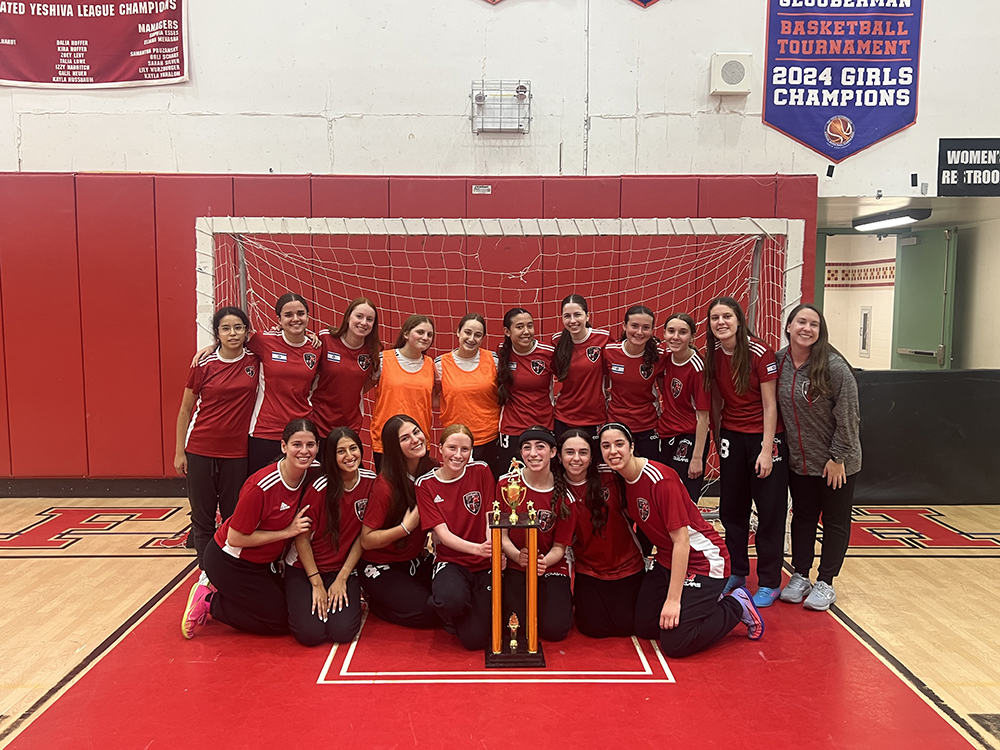In a conversation with State Senate Majority Leader Loretta Weinberg that covered everything from New Jersey politics to the closing of the Izod Center, to Jewish divorce, to Sunday night’s Oscars, Weinberger is a Teanecker down to her very core, and in the course of a conversation with JLNJ, showed her true colors as a staunch Democrat and believer in equal rights.
Weinberg understands the reasons behind the decision to close the Izod Center, but is uncomfortable with how it happened. “It was in contravention of the Public Meeting Act,” she said. “There was no notice given prior to the meeting and no papers presented in support of the decision.”
“My general rule of thumb is that if something is trying to be slipped past the public, there is probably something wrong with it,” said Weinberg.
If the Izod Center was truly losing money—and she is still waiting to have her Open Public Records request for its financials met—then options should be examined in public. She told JLNJ that it’s not right to simply hand over something paid for by New Jersey taxpayers to the privately-owned Prudential Center. And she’s not sure moving everything to Newark is the right decision. Parking and congestion are considerations that need to be addressed. There’s a long way to go before anything is finalized. Weinberg is trying to find out what the next steps might be.
“There are so many unanswered questions,” she said. “This is all in a state of flux.”
The issues with the State Transportation Fund, she believes, are a result of too much refinancing. The Fund continues to get deeper into debt and the existing gas tax is being used to pay off that debt. There needs to be a way to build the Fund, but with Governor Christie’s oft-cited policy of “no new taxes,” it is a difficult prospect, she says. The leadership in the Senate and the Assembly has been negotiating with the Governor, but so far there has been no progress. June 30 is “literally the midnight hour, so we have time,” said Weinberg, but it “would have been nice to have something ironed out prior to the Governor’s speech [Tuesday].”
Weinberg believes refinancing the Fund again is not an option, and said it would be inappropriate, and immoral. “We cannot lay this burden on our children and grandchildren,” she told JLNJ.
She also believes the system has failed New Jersey residents with the State Pension Fund. Speaking before the judge’s ruling on Monday that the Governor broke his own 2011 law by cutting $1.57 billion from a pension payment this year and must work with State lawmakers to restore the funds, Weinberg said, “The legislature negotiated an agreement with the Governor. Employees are paying more toward their pensions and the State reneged on its promise to contribute its share.” She believes it is vital to correct this problem, saying the people affected are “first responders, state employees, people who teach our children—and we cannot let them down.” Again, prior to the judge’s ruling, Christie had not yet shared any possible solutions with New Jersey’s leadership. Now there’s billions that need to be raised immediately.
Moving away from State politics and into an area close to Weinberg’s heart, Judaism, she briefly discussed Lakewood’s Mendel Epstein case and its greater implications on issues of Jewish law versus national law. Epstein is accused of kidnapping recalcitrant husbands in order to force them to provide their wives with a ‘get’ (Jewish divorce). While she believes these husbands are in the wrong, she is opposed to vigilantism, saying “extremism in any form is never something to be embraced. It is, and should be, working its way through the system. A get is based in Jewish law. How much do we want the state involved?” That might be a slippery slope American Jews do not want to travel.
While Jewish law allows nonviolent force to be used to encourage a man to give a get, kidnapping and the alleged beatings are violent crimes. “This is embarrassing to us as Jews,” said Weinberg. “However, law enforcement is dealing with it and we have to accept that all of the members of our larger Jewish ‘community’ are not perfect, just like any other group of people.”
“This is probably one of the first times people are hearing the term ‘get,’” she said. “It’s too bad it has to be under these circumstances.”
In another case involving an agunah (Jewish woman awaiting a get), Rivky Stein of New York has used social media to force her estranged husband to provide her with a get. Weinberg believes that “if she has found a way to shame her husband into giving her what she desperately needs then, unless it rises to the level of harassment, she is free to do it.”
Discussing the Ocean County teenager who prosecutors declined to prosecute after she posted anti-Semitic comments and pictures of herself in a State Police hat with a Hitler mustache on social media, Weinberg said, “I cannot imagine that what she did in her threats is not against the law. I hope the prosecutor looks at this seriously.” If not, Senator Weinberg plans to send a letter to Ocean County prosecutors encouraging them to examine this further. “This is very scary,” she said, again fearing the slippery slope.
Finally, moving on to lighter matters, Weinberg commented that “of course” she had watched the Academy Awards on Sunday night and “loved Patricia Arquette’s acceptance speech, but [I] loved the audience’s reaction—especially J Lo and Meryl Streep—even more.” “It is wonderful to use the stage and a microphone to address social issues,” she said. “I’m all for it—they should do it.”
It was a night promoting equality and Weinberg took issue with people’s complaints about the movie Selma. “Expectations shouldn’t be so high in terms of accuracy because it’s a movie. It’s not a documentary, it’s a dramatization. Anything to help bring the contributions of Martin Luther King to life is great and should be celebrated.”
As a final note, Weinberg commented that so much of her passion and values comes from her Jewish background and the religion itself. “Many issues come down to what I learned being Jewish and talking to rabbis. It made me who I am.”
By Jill Kirsch













